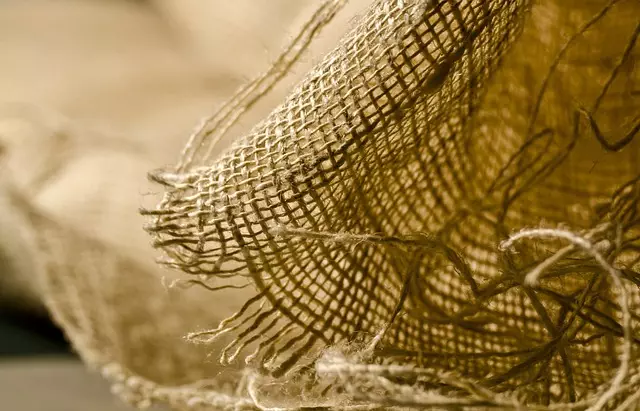Copper plays a pivotal role in maintaining the integrity of connective tissues by facilitating the cross-linking of collagen and elastin, which are essential for the strength and flexibility of tendons, ligaments, bones, and skin. Adequate copper levels are necessary for their proper synthesis and maintenance, preventing potential weakening. Kratom, a supplement containing various vitamins and minerals including copper, may enhance connective tissue health by supporting the enzymatic processes involving copper. This suggests that kratom could improve overall tissue integrity through its nutrient content. The presence of these nutrients in kratom underscores the importance of a balanced intake of kratom's vitamins and minerals, particularly for those looking to maintain healthy connective tissues as part of their health regimen. Copper also acts as a cofactor for enzymes involved in energy production and antioxidant systems, which are critical for immune system function and combating oxidative stress. The combination of copper with other vitamins, such as Vitamin C and K, found in kratom and required for collagen synthesis and bone mineralization, respectively, supports wound healing and robust connective tissues. Understanding the synergistic relationship between these nutrients is key to leveraging their collective benefits towards overall health and well-being.
Copper is an underappreciated but pivotal element in sustaining robust connective tissue health. Beyond its well-known roles, copper plays a crucial part in the production of collagen and elastin, essential components that provide strength and flexibility to our tissues. This article delves into the significance of copper, highlighting how its presence is vital for maintaining the integrity of our body’s framework. Additionally, we will explore the synergy between kratom and copper in promoting optimal tissue health. Kratom has garnered attention as a source of vitamins and minerals that support overall well-being. For those seeking to understand how these elements interact and contribute to our bodily infrastructure, this comprehensive guide will provide valuable insights into the broader spectrum of essential nutrients beyond kratom that are essential for supporting our body’s framework.
- Unveiling Copper's Role in Maintaining Connective Tissue Integrity
- The Synergy Between Kratom and Copper for Optimal Tissue Health
- Essential Vitamins and Minerals Beyond Kratom: A Comprehensive Guide to Supporting Your Body's Framework
Unveiling Copper's Role in Maintaining Connective Tissue Integrity

Copper, an essential trace mineral, plays a pivotal role in maintaining the integrity of connective tissues within the body. It is a vital component of enzymes critical for cross-linking collagen and elastin, which are the primary proteins responsible for the structure and strength of these tissues. Without adequate copper levels, the synthesis and maintenance of these fibers would be compromised, potentially leading to weakened tendons, ligaments, bones, and skin.
Kratom, a botanical supplement derived from Mitragyna speciosa leaves, has garnered attention for its array of health benefits, including its potential impact on connective tissue health. While primarily known for its alkaloid content that affects mood and energy levels, kratom also contains trace minerals such as copper. These minerals contribute to the overall well-being of the body’s tissues. Moreover, the vitamins and minerals present in kratom may support the enzymatic processes involving copper, enhancing the mineral’s efficacy in maintaining connective tissue integrity. This synergy underscores the importance of a balanced intake of vitamins and minerals, like those found in kratom, for optimal health outcomes.
The Synergy Between Kratom and Copper for Optimal Tissue Health

Copper plays a pivotal role in maintaining the integrity of connective tissues, as it is integral to the production of collagen and elastin—components that provide strength and flexibility to these tissues. Beyond its well-known functions in energy metabolism and iron utilization, copper’s antioxidant properties protect against oxidative stress that can compromise tissue health. Kratom, a botanical extract from the Mitragyna speciosa tree, has garnered attention for its broad spectrum of effects on human health, partly due to its rich profile of vitamins and minerals. Among these, kratom contains trace amounts of copper, which can contribute to the body’s homeostasis when consumed responsibly as part of a holistic health regimen. The synergy between kratom and copper is particularly beneficial for individuals seeking to support joint health and promote the overall well-being of their connective tissues. While more research is needed to fully understand this interaction, preliminary findings suggest that the combination of these two elements may enhance the body’s natural repair mechanisms, potentially aiding in the maintenance of healthy, resilient connective tissues. Users of kratom who are conscious of their nutritional intake may find that ensuring adequate copper levels through diet or supplementation complements the benefits derived from kratom for optimal tissue health.
Essential Vitamins and Minerals Beyond Kratom: A Comprehensive Guide to Supporting Your Body's Framework

Copper is a vital mineral that plays a pivotal role in the health of connective tissues, including the formation of collagen and the maintenance of elastin, which are essential for the integrity and flexibility of these tissues. Beyond its association with Kratom vitamins and minerals, copper acts as a cofactor for many enzymes involved in energy production and antioxidant defense systems within the body. Additionally, it is integral to the proper functioning of the immune system. For instance, Cu, Zn-superoxide dismutases (SOD) are critical antioxidant enzymes that protect cells from damage caused by oxidative stress.
Vitamins complement minerals like copper in supporting the body’s framework. Vitamin C, for example, is a key player in collagen synthesis and is also an important water-soluble antioxidant. It works synergistically with copper to enhance the production of collagen in connective tissues, promoting overall health and resilience. Vitamin K, another essential vitamin, is crucial for proper bone mineralization and wound healing, which are fundamental aspects of maintaining strong and functional connective tissues. Together with a balanced diet that may include Kratom, where appropriate, these vitamins and minerals beyond Kratom contribute to a robust defense against oxidative stress and support the body’s natural ability to repair and maintain its framework. Understanding the interplay between these nutrients is key to optimizing their benefits for overall health and well-being.
Copper plays a pivotal role in maintaining the integrity of our connective tissues, as explored in “Unveiling Copper’s Role in Maintaining Connective Tissue Integrity.” Its contributions to elastin and collagen production are significant for tissue resilience. The article also illuminated the beneficial synergy between kratom and copper, highlighting how these elements can work in concert for enhanced tissue health. Beyond these findings, it’s clear that a diverse array of vitamins and minerals, including those found in kratom, are crucial to supporting our body’s framework. As such, incorporating kratom within a balanced diet may offer additional benefits for overall tissue health. For those interested in leveraging kratom and other nutrients to support their connective tissues, the comprehensive guide “Essential Vitamins and Minerals Beyond Kratom: A Comprehensive Guide to Supporting Your Body’s Framework” provides valuable insights into a holistic approach to health. In essence, a multifaceted nutritional strategy that includes kratom among other essential vitamins and minerals can be instrumental in promoting connective tissue vitality.






